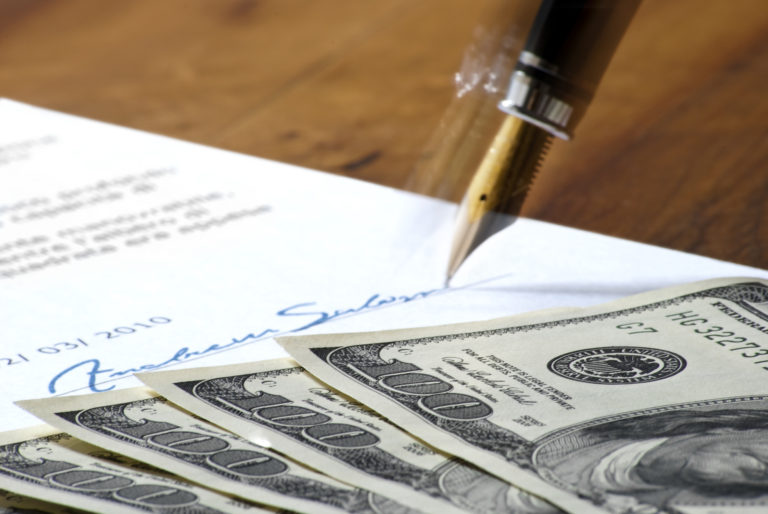Three Key Decisions that Can Reduce Decision Fatigue
Picture your typical morning. If you’re a parent of small kids, you likely make 100 decisions before you even arrive at work. What is the weather like today? What should the baby wear? What should I wear? Does my toddler need a coat today? What will I have for breakfast? Which coat do I need? Should I have black coffee or a latte?
The list goes on. Decision fatigue means that you might arrive at your desk completely exhausted. This doesn’t feel great and it means that your decisions at work might not be as good as they might otherwise be. And by the end of the day you might find yourself completely unable to make simple decisions like what to have for dinner.
What is decision fatigue?
You might have heard about decision fatigue, but what is it exactly? Decision fatigue means that your brain’s ability to make good decisions declines as you make more decisions. In practice, what does that mean?
The struggle is real. I felt that decision fatigue strongly when my kids were babies and toddlers. I had to make so many decisions for them, so I had to minimize decision fatigue by reducing the number of possible decisions. Making this conscious effort to reduce decision fatigue made a huge difference in my mental well being and my ability to function.
Examples of decision fatigue
You’ve probably read the stories about how leaders wear the same thing every day. The argument is that this preserves their brainpower for the big decisions.
Choosing your clothing is a great example of the type of decision that leads to decision fatigue but there are many more. There are plenty of everyday decisions that tax your brain, leaving less capacity for those decisions that really matter. Some examples of decision fatigue-inducing choices you make every day are:
- What to wear
- What to eat
- What route to take to work
- Who will drive the kids to school/activities
- When you will exercise
There are less frequent decisions you need to make as well. These can also bring on decision fatigue:
- Choosing a daycare/school for your child
- Choosing a doctor
- Deciding when to see the doctor
- Deciding how/when to transition your baby to formula or cow’s milk or solid food
When you have a family, your brain can be absolutely swamped by the number of choices you need to make.
How to stop decision fatigue
You absolutely CAN stop decision fatigue if you make a conscious decision to reduce the number of choices you need to make in your life. If you have a set of rules, processes or systems that guide your decisions you can reduce decision fatigue. You’ll make better decisions in all parts of your life when you act to minimize decisions.
Clothing
It’s obvious but critical. You do not want to stand in front of your closet every single day trying to decide what to wear. There are a few options here that will help reduce your decision fatigue.
Create a capsule wardrobe
A capsule wardrobe is a small number of clothing pieces that all go well together. You can mix and match skirts, pants, tops, dresses and jackets to create many different outfits from relatively few items.
Have a work uniform
Many people wear neutral pants and a top every day. You can buy 5 pairs of black or gray or blue pants and 5 work-appropriate tops. Buy one coordinating blazer or cardigan and you’re set. You don’t need to go so far as to wear jeans and a black turtleneck every day, but find a uniform that works for you.
Wear dresses
This one isn’t for everybody but hear me out. Dresses are comfortable and they accommodate weight fluctuations. In the summer, wear the dress with flats. In the winter, wear tights, boots and a blazer or cardigan. With dresses you reduce the number of choices you have to make since it’s top and bottom. This is my uniform and it works perfectly.
Food
You can also reduce decision fatigue by eating the same thing every day. If you thrive on variety, have a couple of choices but don’t leave it open ended. I usually eat the same thing every day for breakfast and the same thing for lunch. I rotate about 7 standard dinner choices so I don’t have to think about dinner too much either.
I even have a standard routine for snacks and treats so I really don’t have to think about making good choices. I love this system because it helps me stay on track with my nutrition AND it really cuts down on decision fatigue.
As an example, in the past my standard breakfast as been:
- 2 pieces of peanut butter toast and grapes + coffee
- A serving of almonds, a protein shake + coffee
- Just coffee 🙂
For years I have had the same thing for lunch: veggies, a little meat, 2 eggs, cheese and salsa. My dinners are also very standardized. I have a short list of dinners that I choose from each week. I rotate through these based on the week’s schedule.
You can also set a typical time to order or buy groceries for the week. I order groceries on Monday morning and pick them up on Monday evening, but many people like to grocery shop on the weekends. Choose what works for your schedule.
Exercise
If you plan your exercise routine for the week, you’ll reduce decision fatigue. You’ll also be much more likely to actually work out! Talk about a win-win.
Some people enjoy going to fitness classes so exercise is pre-built into their schedule. I used to do this before I had kids and it worked great.
Now that I have children, I like to be more flexible. Instead of attending a fitness class, I prefer to stick with an exercise routine. Each day, I can change when I work out but I do the same thing.
Right now, I run in the early morning every other weekday. I lift every weekday and find time to do this in my schedule, anywhere from morning to evening. Finally, my family and I rock climb at the climbing gym twice a week at a fixed time when the kids go to climbing club.
My weekends are more flexible but I try to get in one bike ride, run or hike. This system works for me and keeps me active while eliminating the decisions.
Minimize decision fatigue
You can make just a few decisions in advance that will really help eliminate decision fatigue. Set aside just a few minutes at the beginning of each week to plan out your clothing, food and exercise. This will help you feel more in control. More importantly, planning ahead will free up your brain to make more important decisions than what to have for breakfast.






I always appreciate how practical your suggestions are, Beth. I’m packing for a weekend away and realized I packed 3 pairs of the same jeans and 3 of the same hoodies in different colours. I guess my brain was asking me to simplify without me even knowing it.
This post sums up everything I find to be true about decision fatigue.
I’m in a particularly busy season of life and having a handful of go-to outfits, eating the same thing on repeat (relatively healthy, but things I know the whole family will eat) goes a LONG way in freeing up my mind to handle more important/taxing decisions. I’m ramping up my career and something has to give. And I shouldn’t be spending valuable time dithering over what outfit to wear (especially because I’m not in to fashion!).
On a related tangent: I just finished Oliver Burkeman’s Four Thousand Weeks: Time Management for Mere Mortals, and I really appreciated how he talked about picking something to “fail” at. He doesn’t say pick something to de-prioritize. He doesn’t say pick something to leave off your radar. He doesn’t say pick something to avoid. He doesn’t even advise quitting (though that can work, too).
He says to pick something to FAIL at.
I wouldn’t naturally have chosen to “fail” at anything. And in reality, it is the same as simply acknowledging that I’ve deprioritized things that have no place (at least given present circumstances) hanging out at the top of my to-do list. But I think applying stronger terminology here – FAILURE is a very triggering word – helps put some weight behind it. And, in a way, it also feels liberating. Having the confidence to say: “I’m going to fail at this, and the decision to do so is my own.”
Isn’t so much of our energy often shunted into preventing failure? This is wonderful and necessary in many areas of life (don’t fail to pay the electric bill or you’ll lose power; don’t fail to put on snow tires or you might get in an accident), but we live in disproportionate fear of failure about things we shouldn’t give a flying you-know-what about.
YES! I just read 4000 Weeks (actually listened to the audio book) and it has been on my mind ever since. I absolutely love the idea of failing at something. I’m an economist by training so I’ve always joked that specialization is efficient and I specialize in not doing housework. 🙂 I highly highly recommend that everyone read 4000 weeks.